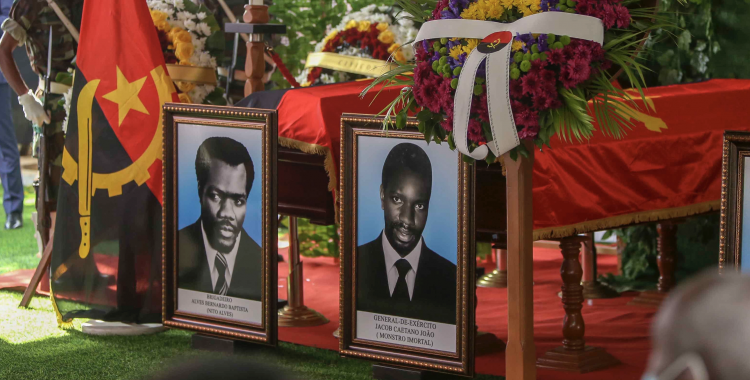In a statement to which Lusa had access, the three associations that make up the 27 de Maio platform (Associação M27, Associação 27 de Maio and Grupo de Survivors 27 de Maio) react to the response from the Ministry of Justice and Human Rights to the Special Rapporteurs of the United Nations High Commissioner for Human Rights, highlighting that there are several points that do not correspond to the truth.
At issue is a letter addressed to the executive, dated January 15, in which the rapporteurs request clarifications about the excessive representation and influence of government officials in the Commission for Reconciliation in Memory of Conflict Victims (Civicop) and the lack of transparency and communication of its activities, as well as concerns regarding the reliability of the process of exhumation and identification of mortal remains of the alleged victims of the murders of May 27, 1975, the name by which an alleged coup d'état became known after which thousands of Angolans were dead.
In the response, dated March 15th, the government responds to the concerns, stressing that the Commission's objective is to "appease the victims of conflicts" that have arisen in Angola since independence and that Civicop's actions are not just focused on May 27th.
Furthermore, they point out, "the process does not cover legal liability or economic compensation".
Plataforma 27 de Maio denies information contained in the response, stating that contrary to what the government responded, the three organizations were never involved in Civicop's work, "nor considered as its 'de jure' members, despite having submitted concrete work proposals without having had the right to any kind of response".
They also dispute that the process of locating, exhuming and identifying the victims' remains is carried out in accordance with the best forensic practices, highlighting that the Portuguese forensic team that compared the DNA of the victims' relatives with the bone samples provided by Luanda found that The victims that Civicop wanted to hand over to their families did not have any correspondence with the missing people.
"These conclusions were transmitted to the Government of Angola, which, instead of changing procedures, has maintained and deepened the same line of action until now", highlights the statement.
The organizations also deny that Civicop has adopted the principle of "material truth", "historicity" and "international principles", insisting that the principle of material truth requires the opening of a historical investigation into what happened on the 27th of May and the subsequent period, and determination of the responsibility of the various actors involved in these events with the opening of State archives and testimonies.
"Civicop refused this request, claiming that it exceeded the scope of the work and did not contribute to the desired reconciliation. This was simply due to the fact that it did not intend to hold the perpetrators of the crimes committed responsible", criticizes Plataforma 27 de Maio.
The Platform "is outraged by the responses presented by the Ministry of Justice and Human Rights, which are further proof that Civicop will continue to hide the fact that the May 27, 1977 process cannot be understood as a "political conflict".
For the organizations, the 27th of May "must be understood as a process of forced disappearances, followed by summary and extrajudicial executions", and a historical investigation, the identification of those responsible for the crimes and the location and identification of the mortal remains of the victims must be guaranteed. missing.
On May 27, 1977, an alleged attempted coup d'état, in an operation that was led by Nito Alves — then former Minister of the Interior since independence (November 11, 1975) until October 1976 — was violently repressed by the regime of Agostinho Neto, first President of Angola.
Six days earlier, the Popular Movement for the Liberation of Angola (MLPA) had expelled Nito Alves from the party, which led the former minister and several supporters to invade the Luanda prison to free other supporters, at the same time taking control of the national radio station, a movement that became known as "fractionism".
Troops loyal to Agostinho Neto, with the support of the Cuban military, ended up establishing order and arresting the rebels, followed by what became known as the "purge", with the elimination of the factions, with around 30 thousand people killed. , most of them without any connection to Nito Alves, as stated by Amnesty International in several reports on the subject.
In April 2019, President João Lourenço ordered the creation of a commission (CIVICOP), to draw up a general plan to honor the victims of the political conflicts that occurred in Angola between November 11, 1975 and April 4, 2002 (end of the civil war).







